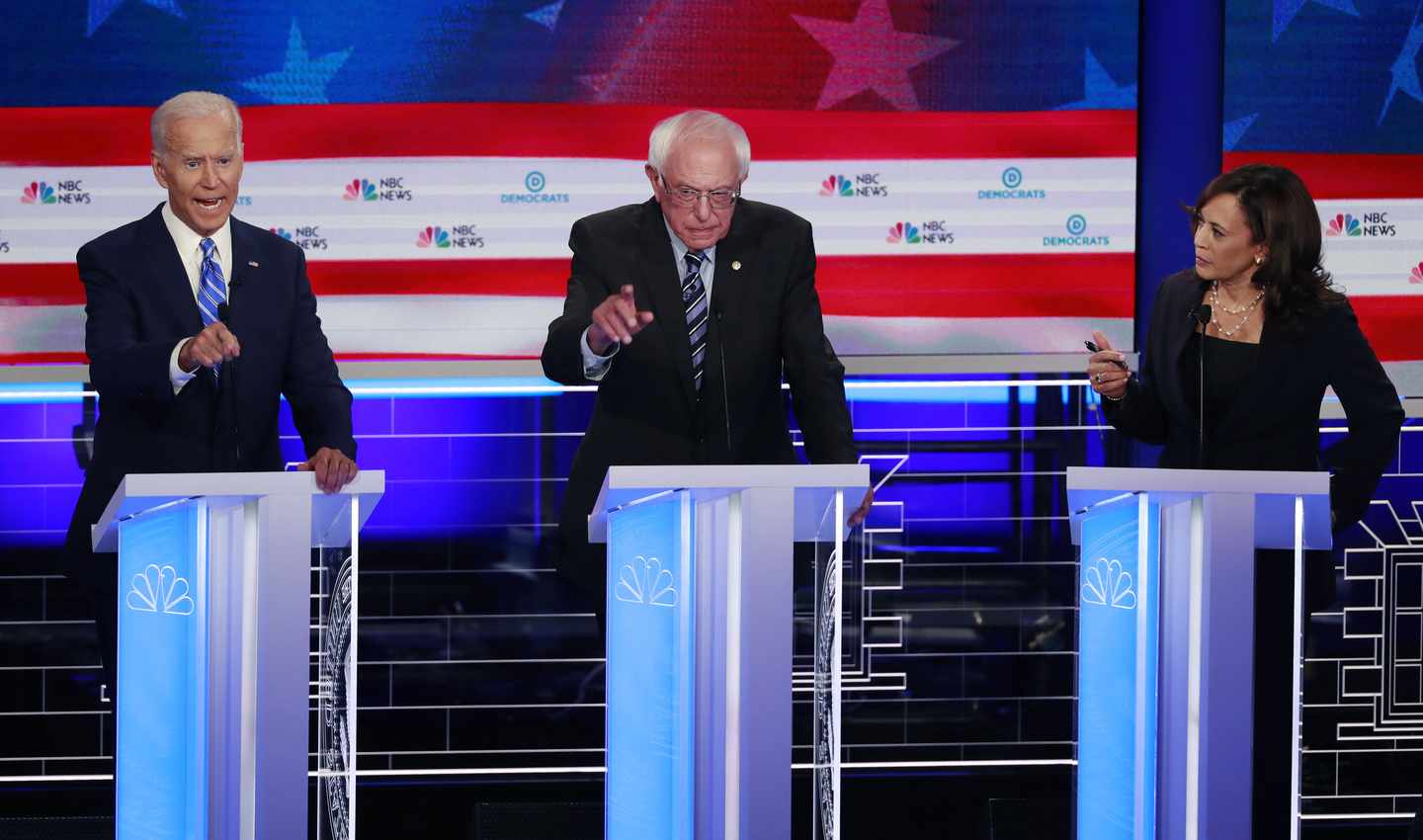Buy, Sell, Hold (September Edition)
September 12, 2019#election2020 #JoeBiden #KamalaHarris #BernieSanders #ElizabethWarren #BetoO'Rourke #Democraticpresidentialdebate

On the occasion of the third Democratic presidential debate, which will feature all of the top 10 contenders on stage for the first time, it is worth re-assessing the state of the race. I will use my usual “buy/sell/hold” take, which asks whether I think the polling and conventional wisdom overstate or understate the likelihood that the candidate becomes the Democratic nominee.
Joe Biden: Sell. I’ve been of the view for quite some time that Joe Biden’s first day as a declared candidate would likely be his best, and the trend lines seem to validate this viewpoint. Since popping up to 40% in the polls shortly after declaring, he’s been in a holding pattern around 30%, with some polling showing him trailing other candidates. More distressing news for his candidacy is found in the early states, where his lead in Iowa is just 10 points (even this is, in some respects, a quirk of averaging a multi-candidate field, as no recent poll has his lead in double digits) while his advantage in New Hampshire is less than a point.
Yes, his lead in later states is more robust, especially South Carolina where his strength among African American voters is keeping his candidacy afloat. But losing the first two early states, or even splitting them, will likely cause voters elsewhere to give a second look to other candidates. Just ask Hillary Clinton.
Elizabeth Warren: Buy. If I had to name a front-runner, it would probably be Warren. She seems to have captured the zeitgeist of the Democratic Party these days, as it shifts steadily leftward. She’s obviously very smart, has a host of wonkish plans, and is in many ways the candidate that many hoped Hillary Clinton would be. Probably the biggest question is whether she can expand her support past a base of very liberal, college-educated whites.
Bernie Sanders: Hold. For a while, it looked as though Sanders might be entering a free-fall, but he seems to have arrested his decline. If he wins New Hampshire, there’s a realistic path for him to win it all this time.
Beto O’Rourke: Sell. It’s hard to believe that Beto was once seen as someone who might catch fire in Iowa and propel himself to the nomination. It isn’t really entirely clear that he’s running for president anymore, as he campaigns in non-swing states and does things like advocate a right to work near your house. His debate performances have been underwhelming, and it is difficult to see how he rights the ship at this point.
Kamala Harris: Buy. This may seem counterintuitive given her precipitous drop in the polls, but Harris is probably undervalued. She’s the most natural political athlete of the bunch, and the Democratic electorate has already showed a willingness to consider her. A good debate and a Biden collapse might be enough to give her a second bounce. In any event, she seems undervalued for now.
Everyone else: Hold. There is a cluster of Democrats polling in the low single digits who are nevertheless within a few points of a fourth-place finish in Iowa or New Hampshire. In other words, it doesn’t take much to go from 2% in the polls to “legitimate contender.” This is magnified by the fact that we don’t know where the supporters of the candidates drawing 1% in the polls will go as they begin to drop out (these voters have to go somewhere). The problem is we don’t have a good way of knowing *which* candidate could play the basic role assumed by John Kasich in the 2016 Republican primary. But don’t count out all of the candidates getting 2% just yet.
Brokered convention: Buy. The modern era of elections, where fundraising is effectively crowdsourced on the Internet and where candidates can reach millions of voters through social media effectively for free, seems to suggest that at some point in the next few cycles we will have a situation where no candidate wins a majority of the delegates. The Democratic Party seems particularly vulnerable to this outcome, since delegates are awarded proportionally (once candidates cross a certain vote threshold). This is unlike the Republican primaries where the final ones are winner-take-all; this is probably the only thing that prevented a brokered convention in 2016 on the Republican side.
This Democratic nightmare scenario doesn’t involve six or seven candidates making it to Super Tuesday – that is unlikely to happen. Instead it involves two or three candidates, and then a factional candidate who continues to draw 15% in the polls in most states and refuses to drop out as two other candidates duke it out. In other words, something like Biden vs. Warren vs. Sanders.
Source: https://www.realclearpolitics.com/

